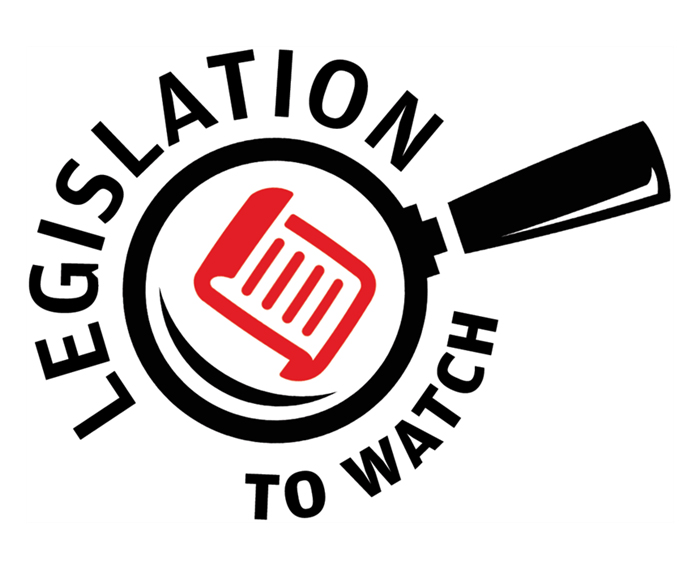
96-Page Community Association Bill Filed
Senator Dennis Baxley (R-12) has filed SB 630, a 96-page bill which proposes significant changes for Florida condominiums, cooperatives and HOAs. While many of the provisions are useful, others are less so and we will be reaching out to the bill sponsor to discuss some of the concerns we have with certain changes. Some of those changes are discussed below.
Changes That Impact Condominium, Cooperative and Homeowners’ Associations
- The bill seeks to amend Section 627.714, F.S. to provide that if a condominium association’s insurance policy does not provide rights for subrogation against the unit owners, an insurance policy issued to a unit owner may not provide rights of subrogation against a condominium association. It is believed that the impetus for this provision was to address the enormous number of subrogation cases brought by one property insurer in Florida any time that company receives an insured’s claim related to water damage in a multifamily building. However, by removing subrogation rights altogether, the bill removes the ability of an owner to pursue his or her rights when negligence has been the primary or contributing source of his or her property damage.
- Associations may extinguish a discriminatory restriction found in their governing documents pursuant to Section 712.065, F.S. Some older communities still have pernicious racial restrictions in their governing documents and this provision would make it easier to remove those provisions.
- Recall and election disputes may now be filed with the Division OR with a court of competent jurisdiction.
The bill expands the statutory emergency powers for boards as a result of the many challenges boards have tackled during the ongoing pandemic. However, while these changes are a useful development, they are not as beneficial as language that was drafted by the Florida Bar’s Pandemic Task Force.
Specifically, the bill provides that an association may not prohibit owners, tenants, guests, agents, or invitees from accessing units and common elements for certain reasons including (a) the sale, lease, or other transfer of title to a unit; (b) the habitability of the unit for the health and safety of such person unless a governmental order or determination, or public health directive from the CDC has been issued prohibiting access to the unit. Many associations sought to restrict realtors’ open houses during the height of the pandemic and this language could jeopardize a board’s ability to do so in the future. Also, communities (particularly vulnerable ones) should be able to decide for themselves whether or not unit habitability is safe during a public health crisis and not have to wait for a directive from local government or public health officials.
Changes That Impact Condominiums
- The bill would require a condominium association to give an itemized list of records provided to owners in response to a request for records. The itemized list must be certified by the manager or a board member or by sworn affidavit of the association. The division may adopt rules setting forth the specific requirements for this itemized list. Given how time-consuming the document inspection process can already be, the requirement for a certified, itemized list seems unduly burdensome. Lastly, an association may not require an owner to state a proper purpose for inspection of records. The prohibition against requiring a purpose for a document inspection also applies to cooperatives.
- Amends Section 718.112(2)(d)3, F.S. which requires fourteen (14) days’ written notice for all membership meetings that are not annual meetings if the bylaws do not specify a specific notice requirement.
- Confirms that board member term limits are calculated after 7/1/2018.
- Increases the amount a condominium board can charge in connection with a transfer of a unit by sale or lease to $150 per applicant which will be adjusted every 5 years based on CPI. This is a welcome change as the amount associations could charge for background checks had not increased in more than a decade.
- Requires that natural gas vehicles and natural gas fuel stations be added to electronic vehicle statute.
- Deletes Section 718.112(2)(p), F.S. regarding service provider conflicts of interest.
- Confirms that fines are due 5 days after notice, not 5 days after the Fining Committee meeting. This change also applies to HOAs.
Changes That Apply to Condominiums and Cooperatives
- Permits the person filing a pleading in a condominium or cooperative dispute to choose either mandatory arbitration OR mediation. The respondent may still ask for mediation if the petitioner filed a petition for arbitration. This change does not apply to election or recall disputes.
- 719.106(1)(b)5: A board or committee member participating via telephone or video conferencing counts towards a quorum and such member may vote as if physically present.
Changes Impacting HOAs
- Removes the requirement that notices be sent to the owners’ addresses as listed on the property appraiser’s website. This change would allow a reversion to the prior protocol of sending notices to the owners’ mailing addresses as reflected in the official records of the association under 720.303(4).
- 720.301(8): Removes “rules and regulations” from the definition of “governing documents.”
- 720.303(2)(c)1: In addition to other means of providing notice, an HOA could adopt procedure for posting notice and agenda on the association’s website.
- 720.303(4): Confirms that ballots, sign-in sheets, proxies, etc. must only be maintained for 1 year after date of election, vote, or meeting.
- 720.303(6): Removes language regarding mandatory reserves if reserves “have been established by developer” but adds that even if the developer never established reserves, if the declaration, articles or bylaws obligated the developer to create reserves, reserves are mandatory in addition to reserves being mandatory if the members vote to mandate reserves.
- Attempts to grandfather certain HOA rental rights in the same manner that condominium rental rights are grandfathered under Section 718.110(13), F.S. The bill provides that an amendment to an HOAs governing documents or rule after July 1, 2021, which prohibits rentals, alters the duration of rental term, or specifies or limits the number of times a parcel may be rented, applies only to parcels that consent to such amendment and parcel owners who acquire title after the effective date of amendment (the effective date is the date the amendment is recorded in the Public Records). However, notwithstanding the foregoing, the association may amend the governing documents to prohibit or regulate rental terms for fewer than six (6) months and to prohibit an owner from renting his or her parcel more than three (3) times in a calendar year and such amendments will apply to all owners regardless of how they vote if the amendatory threshold is achieved. This new language will not apply to associations with fifteen (15) or fewer parcels. A change in ownership does not occur when a parcel owner conveys the parcel to an affiliated entity or when beneficial ownership of the parcel does not change. The bill provides a definition of “affiliated entity”.
Please remember that the foregoing does not describe the entire contents of this lengthy bill and this is only proposed language at this stage. The bill will likely undergo various iterations as it winds through the committee process. CALL will be monitoring this bill closely as well as other bills that will impact our community association members directly or indirectly when Florida’s 2021 Legislative Session commences on Tuesday, March 2.
Lastly, many people are receiving COVID-19 vaccines in Florida but the demand for even wider distribution continues. Please take a moment to complete Becker’s 2-minute survey on whether or not your community might want to serve as a point of distribution (POD).

